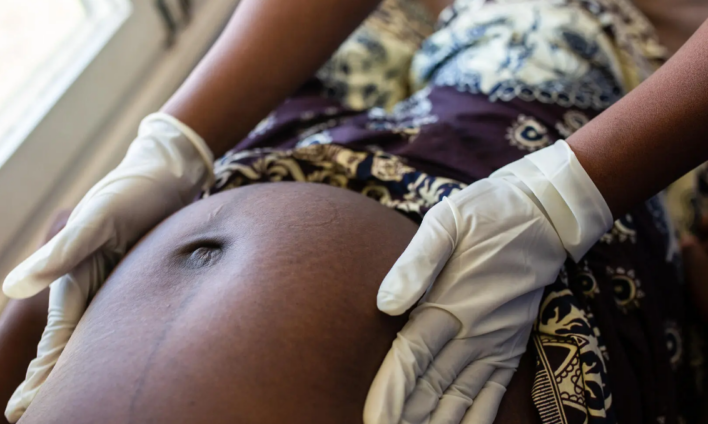The Ghana Health Service says Ghana has achieved a 50 per cent reduction in cases of obstetric fistula in five years under the Ghana Obstetric Fistula Prevention and Management Plan (GOFPMSP).
The GOFPMSP 2017-2021, developed after a global call in the fight against fistula, was to establish and maintain sustainable funding mechanisms to divide obstetric fistula cases in Ghana by the year 2021 as well as eliminate the condition by 2030.
It was also aimed at preventing obstetric fistula, improving case identification and referral, providing treatment and care for all women with obstetric fistula, and providing rehabilitation and reintegration for each client and support for the caregiver.
Professor Sebastian Eliason, Consultant for the strategic plan made this known in a presentation at the fourth Maternal, Child Health, and Nutrition (MCHN) Conference 2023 organized by the Ghana Health Service in Accra.
The three-day conference was on the theme: “Strengthening service delivery for quality and accessible RMNCAH&N outcomes to meet the SDGs midpoint and beyond”.
It sought to reflect on new initiatives and strengthening of all levels of the health system with a special focus on the sub-district level of service delivery.
An obstetric fistula is a severe medical condition in which a fistula (hole) develops either between the rectum and vagina (recto-vaginal fistula) or between the bladder and vagina (vesico-vaginal fistula) after complications resulting from childbirth.
According to the World Health Organization (WHO) between 50 000 to 100 000 women worldwide are affected by obstetric fistula annually.
However, a 2015 Ghana Health Service/UNFPA report, estimated that 1,300 new cases of obstetric fistula are recorded annually with 1.6-1.8 cases occurring per 1000 births.
Dr Eliason said the achievements were made due to improvements in obstetric care, an increase in antenatal attendance, an increased number of midwives in both CHPS compound and health facilities, and enrolment of obstetric fistula onto the National Health Insurance Scheme, among others.
He explained that in 2017 when the plan was initiated the number of obstetrics fistula cases reported reduced from 540 to 206 in 2021.
He noted that despite the success chalked there was still a backlog of cases due to inadequate treatment outreach and Obstetric Fistula (OF) surgeons, poor referral of identified cases, inadequate and unsustainable funding mechanisms, and inadequate partnerships for OF, among others.
He called for awareness creation and education about OF, a comprehensive mentorship programme for training district doctors and residents in obstetric and gynecological surgeries, prioritized resource mobilization, and new OF partnerships to effectively implement the new strategic plan.
Latest Stories
-
Is NPP crying more than the bereaved in the Chief Justice saga?
42 minutes -
“Elements within NPP worked against me for supporting ‘Ken must go'” – Cynthia Morrison
2 hours -
IMF Boss commends finance minister for strong commitment to economic reform
2 hours -
Cynthia Morrison advises Ghanaian women to diversify their skills to build wealth
2 hours -
UK deports 43 immigration offenders to Ghana and Nigeria
3 hours -
Piwak Natural Health urges Akosombo victims to rebuild with new donation
3 hours -
Ghana’s Para athlete Gilbert Ampiah wins bronze at Marrakech Grand Prix 2025
3 hours -
6 dead in Adansi Dompoase crash involving VIP bus and sprinter
3 hours -
Saturday’s heavy rainstorm caused outages within our network – ECG
4 hours -
Police arrest 3 over gold robbery at Wassa Afransie
5 hours -
Against all odds: Zinabu Issah clinches silver for Ghana at WPA Marrakech 2025
6 hours -
ASFC 2025: Ghana girls complete host-and-win mission after beating Uganda
6 hours -
NPC President congratulates new GOC Executives
6 hours -
Stonebwoy displays maturity amid Aisha Modi’s attacks: a masterclass in brand integrity and respect
6 hours -
Afro-Arab Group CEO commends Kwahu Business Forum
6 hours

